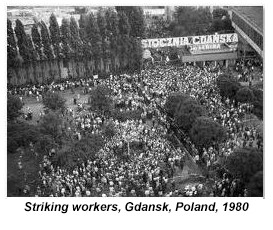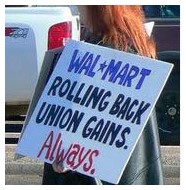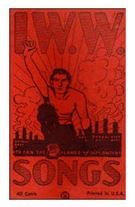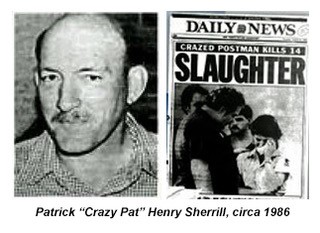This Week in Labor History
August 14
 President Roosevelt signs the Social Security Act, providing, for the first time ever, guaranteed income for retirees and creating a system of unemployment benefits – 1935 President Roosevelt signs the Social Security Act, providing, for the first time ever, guaranteed income for retirees and creating a system of unemployment benefits – 1935
Members of the upstart Polish union Solidarity seize the Lenin shipyard in Gdansk. Sixteen days later the government officially recognizes the union. Many consider the event the beginning of the end for the Iron Curtain – 1980
Former AFL-CIO president Lane Kirkland dies at age 77 – 1999
August 15

To begin what proved to become one of the world’s longest construction projects, workers lay the foundation stone of Germany’s Cologne Cathedral, built to house the relics of the Three Wise Men. The job was declared completed in 1880—632 years later – 1248
The Panama Canal opens after 33 years of construction and an estimated 22,000 worker deaths, mostly caused by malaria and yellow fever. The 51-mile canal connects the Atlantic and Pacific oceans – 1914
Populist social commentator Will Rogers killed in a plane crash, Point Barrow, Alaska. One of  his many classic lines: “I don’t make jokes. I just watch the government and report the facts” – 1935 his many classic lines: “I don’t make jokes. I just watch the government and report the facts” – 1935
(Workplace Jokes: Only SOME of Them Will Get You Fired!: Did you hear the one about the supervisor and the new employee who bump into each other in a bar? Maybe, but maybe not. In either case, you can find it and a couple hundred other great workplace jokes in this new collection, the only one of its kind. You won’t find working people as the butt of jokes here… it’s more likely to be the boss, the banker, the yes man and the union-busting lawyer.)
President Richard M. Nixon announces a 90-day freeze on wages, prices and rents in an attempt to combat inflation – 1971
Gerry Horgan, chief steward of CWA Local 1103 and NYNEX striker in Valhalla, N.Y., is struck on the picket line by a car driven by the daughter of a plant manager and dies the following day. What was to become a 4-month strike over healthcare benefits was in its second week – 1989
 Eight automotive department employees at a Walmart near Ottawa won an arbitrator-imposed contract after voting for UFCW representation, becoming the giant retailer’s only location in North America with a collective bargaining agreement. Two months later the company closed the department. Three years earlier Walmart had closed an entire store on the same day the government announced an arbitrator would impose a contract agreement there – 2008 Eight automotive department employees at a Walmart near Ottawa won an arbitrator-imposed contract after voting for UFCW representation, becoming the giant retailer’s only location in North America with a collective bargaining agreement. Two months later the company closed the department. Three years earlier Walmart had closed an entire store on the same day the government announced an arbitrator would impose a contract agreement there – 2008
August 16
George Meany, plumber, founding AFL-CIO president, born in City Island, Bronx. In his official biography, George Meany and His Times, he said he had “never walked a picket line in his life.” He also said he took part in only one strike (against the United States Government to get higher pay for plumbers on welfare jobs). Yet he also firmly said that “You only make progress by fighting for progress.” Meany served as secretary-treasurer of the AFL from 1940 to 1952, succeeded as president of the AFL, and then continued as president of the AFL-CIO following the historic merger in 1955 until retiring in 1979 – 1894
 Homer Martin, early United Auto Workers leader, born in Marion, Ill. – 1902 Homer Martin, early United Auto Workers leader, born in Marion, Ill. – 1902
Congress passes the National Apprenticeship Act, establishing a national advisory committee to research and draft regulations establishing minimum standards for apprenticeship programs. It was later amended to permit the Labor Department to issue regulations protecting the health, safety and general welfare of apprentices, and to encourage the use of contracts in their hiring and employment – 1937
National Agricultural Workers Union merges into Amalgamated Meat Cutters & Butcher Workmen – 1960
Int’l Union of Wood, Wire & Metal Lathers merges with United Brotherhood of Carpenters & Joiners – 1979
August 17
 IWW War Trials in Chicago, 95 go to prison for up to 20 years – 1918 IWW War Trials in Chicago, 95 go to prison for up to 20 years – 1918
Bakery & Confectionery Workers Int’l Union of America merges with Tobacco Workers Int’l Union to become Bakery, Confectionery & Tobacco Workers – 1978
Year-long Hormel meatpackers’ strike begins in Austin, Minn. – 1985
August 18
Radio station WEVD, named for Eugene V. Debs, goes on the air in New York City, operated by The Forward Association as a memorial to the labor and socialist leader – 1927
 Founding of the American Federation of Government Employees, following a decision by the National Federation of Federal Employees (later to become part of the Int’l Association of Machinists) to leave the AFL – 1932 Founding of the American Federation of Government Employees, following a decision by the National Federation of Federal Employees (later to become part of the Int’l Association of Machinists) to leave the AFL – 1932
August 19
 First edition of IWW Little Red Song Book published – 1909 First edition of IWW Little Red Song Book published – 1909
Some 2,000 United Railroads streetcar service workers and supporters parade down San Francisco’s Market Street in support of pay demands and against the company’s anti-union policies. The strike failed in late November in the face of more than 1,000 strikebreakers, some of them imported from Chicago – 1917
Founding of the Maritime Trades Dept., AFL, to give “workers employed in the maritime industry and its allied trades a voice in shaping national policy” – 1946
Phelps-Dodge copper miners in Morenci and Clifton, Ariz., are confronted by tanks, helicopters, 426 state troopers and 325 National Guardsmen brought in to walk strikebreakers through picket lines in what was to become a failed 3-year fight by the Steelworkers and other unions – 1983

Some 4,400 mechanics, cleaners and custodians, members of AMFA at Northwest Airlines, strike the carrier over job security, pay cuts and work rule changes. The 14-month strike was to fail, with most union jobs lost to replacements and outside contractors – 2005
August 20
The Great Fire of 1910, a wildfire that consumed about 3 million acres in Washington, Idaho and Montana—an area about the size of Connecticut—claimed the lives of 78 firefighters over two days. It is believed to be the largest, although not deadliest, fire in U.S. history – 1910
 Deranged relief postal service carrier Patrick “Crazy Pat” Henry Sherrill shoots and kills 14 coworkers, and wounds another six, before killing himself at an Edmond, Okla., postal facility. Supervisors had ignored warning signs of Sherrill’s instability, investigators later found; the shootings came a day after he had been reprimanded for poor work. The incident inspired the objectionable term “going postal” – 1986 Deranged relief postal service carrier Patrick “Crazy Pat” Henry Sherrill shoots and kills 14 coworkers, and wounds another six, before killing himself at an Edmond, Okla., postal facility. Supervisors had ignored warning signs of Sherrill’s instability, investigators later found; the shootings came a day after he had been reprimanded for poor work. The incident inspired the objectionable term “going postal” – 1986
—Compiled and edited by David Prosten
| Copyright © 2017 Union Communication Services-Worker Institute at Cornell ILR, All rights reserved. |
|
|
 President Roosevelt signs the Social Security Act, providing, for the first time ever, guaranteed income for retirees and creating a system of unemployment benefits – 1935
President Roosevelt signs the Social Security Act, providing, for the first time ever, guaranteed income for retirees and creating a system of unemployment benefits – 1935









